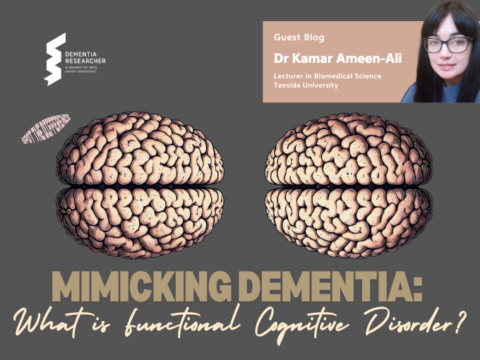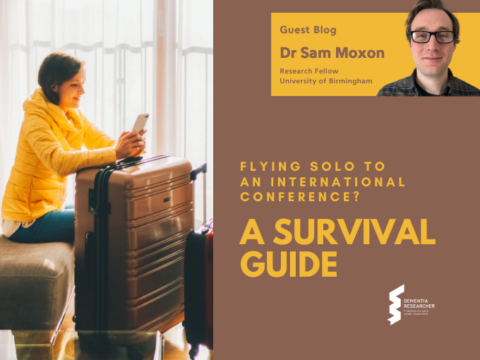Recent years have seen various mentoring schemes pop up in academia both within Higher Education Institutions (HEIs), and through organisations and charities. This has, in part, been in response to a changing landscape over the last decade or so, which has seen an increase in precarious contract-based employment for early career researchers (ECRs), resulting in many talented scientists leaving academia for better-paid secure employment where they feel valued. In this blog, I will share my experience of being part of two different mentoring schemes and discuss why ECRs need good mentors.
Let’s start by discussing what exactly mentoring is, who can benefit from it, and who can be a mentor. The purpose of mentoring is to provide guidance and support in a particular area, and to enable someone to develop and make choices that will enable them to progress in a chosen area. Mentoring is not the same as coaching. Mentoring is designed to “flatten the hierarchy”, with the mentee leading on what knowledge, skills, and experience they want to develop, and the mentor providing support to enable the mentee to discover what they want. There should be no assumptions that the mentee should do something the same way as the mentor. Coaching, on the other hand, may be more orientated around skill development and goal setting, with the coach providing advice and guidance on how these can be achieved.
A mentor does not always have to be someone senior, but they should have an appropriate level of experience to be able to provide sufficient support, meaning a mentor will typically be more senior than a mentee. This does not mean that every ECR should be mentored by a professor. Depending on the particular area a PhD student, for example, might want to develop, they may be more effectively mentored by a postdoc or research fellow. The emphasis should be on whether the mentor can adequately support the needs and development of the mentee, rather than reinforcing the structural hierarchy of academia. A postdoc, therefore, could effectively mentor a PhD student navigating academia for the first time and provide support on things like how to present a poster, the process of publishing a manuscript, or even how to ask your supervisor for time off when you don’t officially have allocated holiday/annual leave. I know what you’re thinking: it sounds like a mentor in this scenario is just a proxy for the supervisor, taking on some of the tasks they should be responsible for. I’ll come back to that later, but it’s important to note that mentoring isn’t something which is exclusively beneficial for advancing the careers of ECRs. In a previous blog I wrote about the transition from postdoc to lecturer, and all the new responsibilities this entails. Mentorship can help new lecturers adjust to new challenges relating to teaching and administration, whilst also trying to establish research independence and bid for funding. Being a new lecturer, having previously worked as part of larger research groups, can feel incredibly isolating, so mentorship can be a crucial support mechanism.

Successful mentoring relationships go through four phases: preparation, negotiating, enabling growth, and closure. These sequential phases build on each other and vary in length.
In the summer of 2021, I became a mentor for the British Neuroscience Association (BNA) Scholars Programme, which is designed to support students from under-represented ethnic groups. For me, this involves providing mentorship to a PhD student from another university over the course of their studies, where we have regular catch-up meetings every two months. My motivation for joining the mentoring scheme was twofold. Firstly, I had, and continue to have, excellent mentorship from my PhD supervisor and I wanted to offer the same for another student. Secondly, we know that people from under-represented groups face structural inequalities in academia and are disproportionately affected by things such as precarious contracts and work casualisation. The BNA Scholars Programme was the first in the UK which I had seen propose a strategy for dismantling inequalities in academia that went beyond simple virtue signalling and box ticking.
More recently, I have become a mentor for a scheme organised by Alzheimer’s Research UK (ARUK) which is designed to pair up mentors and mentees working in dementia research at different universities. Dementia is projected to become a global health crisis, so it is crucial that talented scientists are retained in this research field if we are to see significant advances towards meaningful treatments. In contrast to the BNA programme which runs the course of the mentee’s studies, the ARUK mentorship scheme runs for a period of six months but can be extended if mentors and mentees wish. It will be interesting to see how much progress can be made in this short period of time. However, one of the benefits of the ARUK scheme is that it is open for researchers to be both mentors and mentees, recognising that we do not fall into these discrete categories, and mentorship can be helpful at various career stages.
So we have established that mentorship can be an effective tool in providing support around making decisions about what you want to do and for making progress in particular areas. Anyone who can benefit from such support, regardless of career stage, can be a mentee, and anyone with appropriate experience to provide the required support can be mentor. But why do we need mentors when much of this support could (should?) be provided to PhD students by their supervisors, and to postdocs and academics by their line managers? Is it a failure of academia that mentors are needed, or is it a positive step forward to introduce an additional support network that isn’t solely dependent on the one individual? I have experienced first-hand the benefits of mentoring in academia, both as a mentee and as a mentor. Many supervisors and line managers also mentor their students or staff, but the reality is, there are also many who either lack the will or the time to provide support and guidance for long-term development that goes beyond day-to-day supervision and management. Many are simply interested in ensuring essential objectives relating to research, teaching, and admin are achieved, with the rest left for the individual to navigate themselves. I have worked across seven UK HEIs, and I have known senior academics like this in every single one. There may, however, be benefits to being mentored by someone who isn’t directly connected to your work. Having a mentor who is separate from the role of being your supervisor or line manager, and ideally someone who is external to your department or even institution, can allow a much more honest and open relationship to develop, because the mentor is not connected to the mentee’s day to day work and can hopefully offer unbiased advice and support. But it is important to recognise that external mentoring can exacerbate existing exploitative work practices due to the lack of renumeration and recognition for those who volunteer to be part of mentoring schemes.
ECRs who have bad supervisors and line managers should have an additional means of support, which mentoring can effectively provide, but this enables these supervisors and line managers to continue their bad practice. The burden once again falls on exploiting the good will of staff who care about the long-term development of their junior colleagues.
The need for good mentors in academia to support ECRs, and actually mid-career researchers as well, is greater now than ever, largely due to the precarious working conditions in academia. However, we need to be careful that we don’t sleepwalk into a situation which fails to address bad working practices and increases the workload for those who take on mentorship roles. Mentoring should be something that we want in academia to promote progression and development, not something that we need because other systems are failing.

Dr Kamar Ameen-Ali
Author
Dr Kamar Ameen-Ali is a Lecturer in Biomedical Science at Teesside University & Affiliate Researcher at Glasgow University. In addition to teaching, Kamar is exploring how neuroinflammation following traumatic brain injury contributes to the progression of neurodegenerative diseases that lead to dementia. Having first pursued a career as an NHS Psychologist, Kamar went back to University in Durham to look at rodent behavioural tasks to completed her PhD, and then worked as a regional Programme Manager for NC3Rs.

 Print This Post
Print This Post




